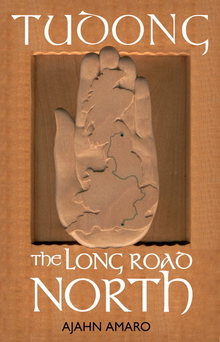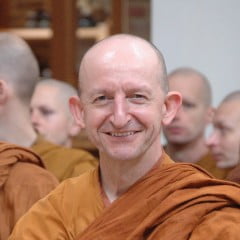Tudong is a Thai derivative of the Pali word dhutanga translating literally as ‘means of shaking off’; it is used to refer to the austere or ascetic practices allowed by the Buddha for his disciples. These practices are thirteen in number and include, for example: eating only one meal a day, eating all your food together in your alms-bowl, never lying down, only wearing robes made from scraps of thrown-away cloth, taking the shade of a tree as your only shelter. These practices are seen as a ‘means of shaking off’ since austerity of lifestyle, when rightly applied, can be greatly conducive to the development of wisdom and insight – that is, the shaking off of one’s delusions.
The word tudong is also used to refer to those monks who adhere closely to the monastic discipline and whose practice of the Buddha’s teachings is based on meditation and the cultivation of these dhutangas. Both the monastic discipline and the additional constraints of the dhutanga practices are tools used to help contain the mind. This containment is achieved as they prevent or make clear the tendencies of the mind to ‘flow out’; that is, absorb into the likes […]”













































































